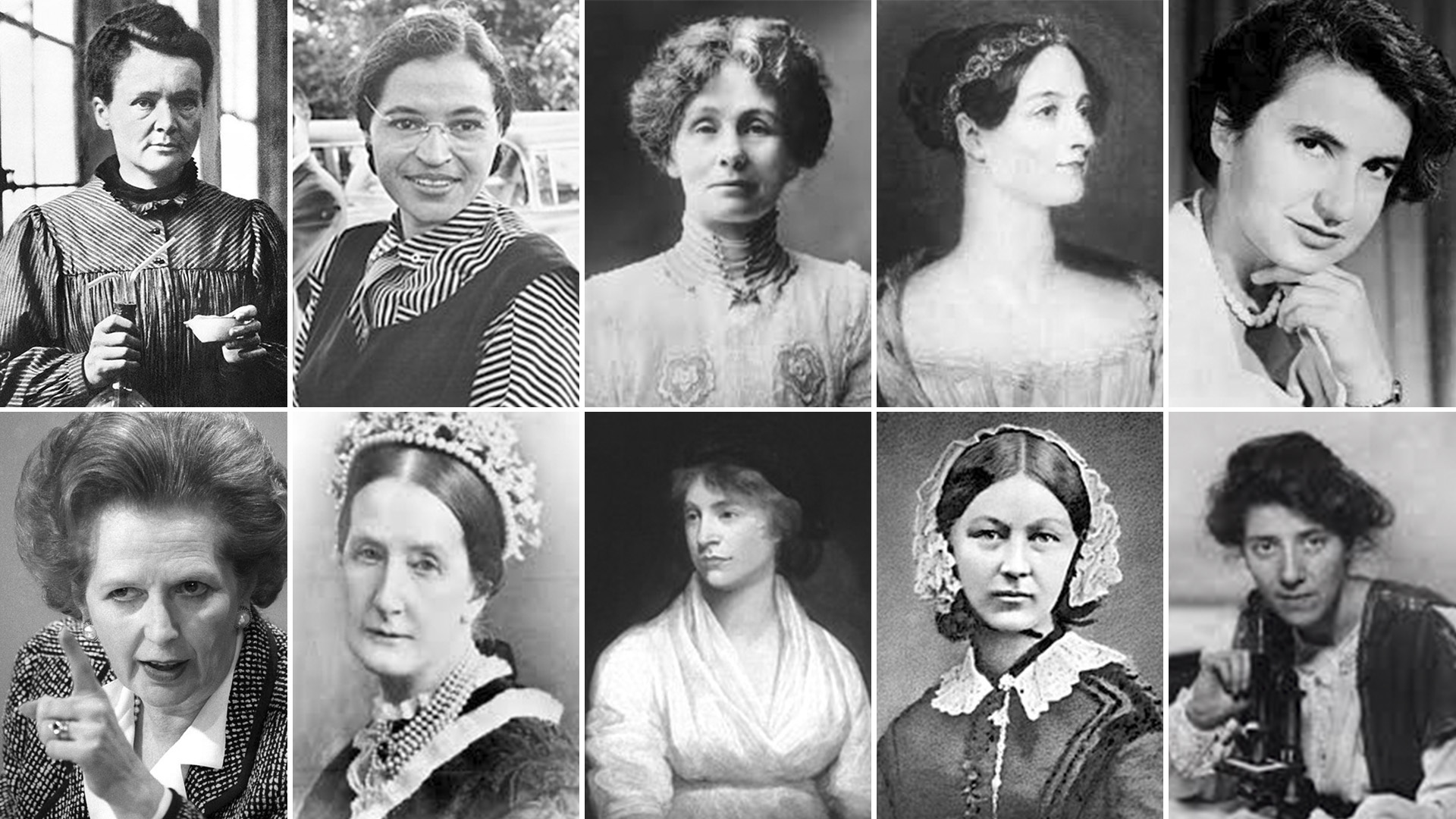
15 Women influencers before the internet
Women have always been figures of power but before the phenomenon influencer Women were transparent in a society built by and for men; however, I am going to list all those women who, in different periods of society, contributed something that should not be overlooked.
I'm going to start c
1. Cleopatra VII | 69 BC – August 12, 30 BC
Whose full name was Cleopatra Philopator Nea Thea, was the last queen of Ancient Egypt and the Ptolemaic dynasty. With it came to an end the Hellenistic period from Egypt.
Testimonies of the time show that her appeal did not lie in her beauty, but in a captivating personality and fascinating.
2. Hypatia of Alexandria | 355 – March 8, 415 AD
Hypatia of Alexandria was the first woman on record to have cultivated science and philosophy. He excelled in the fields of mathematics, astronomy and philosophy and led the Neoplatonic School of Alexandria at the beginning of the 5th century. Hypatia paved the way for a long list of female scientists who have contributed to the world with their intellect.
3. Eleanor of Aquitaine | 1120 – 1204
Eleanor was born Duchess of Aquitaine and Guyenne, although due to her marriage she soon became Queen consort of France, and later of England. Her marriages complicated her life, making her take sides government affairs until the last of his days.
He participated alongside the king in the second crusade, which encouraged many more women to accompany their husbands during the conflict.
4. Joan of Arc | 1412 – May 30, 1431
It was a French heroine and soldier, later canonized. Thanks to her courage and bravery, King Charles VII of France made the decision to expel the English from their countryIn return, the king gave him authority over his army during decisive battles in the well-known Hundred Years War.
5. Catherine the Great | May 2, 1729 – November 17, 1796
Catherine II of Russia was Empress of Russia for 34 years. Some of the improvements associated with his government were the importation from Europe of the legal and political philosophyHe cultivated the arts, medicine, culture and education.
She wrote her memoirs herself., a document from which most of the information known about his life and legacy comes.
6. Ada Lovelace | December 10, 1815 – November 27, 1852
Augusta Ada King, Countess of Lovelace, is considered the first computer programmer, thanks to the creation of a algorithmor capable of being read by a machine.
She was a mathematician and a writer., and worked mainly with the Analytical Engine, a tool that functioned like a mechanical calculator.
7. Coco Chanel | August 19, 1883 – January 10, 1971
The designer is on the list of the 100 most influential personalities of the 20th century from Time magazine. Coco Chanel designed haute couture fashion French of maximum international relevance. It has gone down in history for Break the corseted fashion from the years of the Belle Époque and bet on a simple and elegant style which has characterized their designs, making them a hallmark.
8. Amelia Earhart | July 14, 1897
It was a aviator of North American origin. He achieved fame for his excellent flight marks, as well as for trying for the first time a air travel around the world above the equator. She was also the first woman in history to fly over the Atlantic Ocean.
He tragic end Amelia's disappearance during her last flight has been a matter of discussion for many years.
9. Florence Nightingale | 12 May 1820 – 13 August 1910
Florence, of British origin, was Nurse, statesman and writer. It is considered mother of modern nursingHer work during the Crimean War allowed her to be admitted to the Royal Statistical Society, among other honors.
His legacy is such that the date of his birth is International Nurses Day, and all nurses must take the Nightingale Oath before graduating.
10. Marie Curie | November 7, 1867 – July 4, 1934
Marie Curie was a excellent scientist of Polish origin, naturalized in France. Among her many merits is having been awarded two Nobel Prizes in two different specialties.
Science owes the development of the Theory of RadioactivityShe was the first to propose the use of radiation as a cure during the period of the First World War.
11. Eleanor Roosevelt | October 11, 1884 – November 7, 1962
Anna Eleanor Roosevelt married former US President Franklin Delano Roseevelt. She was a Human rights activist and diplomat, considered one of the leaders who has had the greatest influence during the 20th century. Among the social work he carried out was active participation in the formulation of the United Nations Universal Declaration of Human Rights.
12. Indira Gandhi | 19 January 1966 – 24 March 1977
Indira Gandhi was a Indian ruler who served as President of the Congress Party and Prime Minister of India for fifteen years.
It was a policy of great capacities, and a free thinker which favored the role of independent women in achieving their goals in an extremely patriarchal society.
13. Simone de Beauvoir | January 9, 1908 – April 14, 1986
It was an excellent philosopher, professor and existentialist writer. Some of his works are the standard-bearer of feminist thought. She dealt with social, political and philosophical themes in her writings. Beauvoir married Jean Paul Sartre, although she never abandoned her self-determination. She was a independent woman who fought to promote the role of women in a masculine society.
14. Margaret Thatcher | 13 October 1925 – 8 April 2013
Thatcher was the first woman to hold the post of Prime Minister in England.
His ironclad policy and the firmness with which he made decisions and enforced them earned him the nickname Iron Lady.
The United Kingdom experienced a series of social, political and economic changes of the utmost importance after his election. His way of doing politics has been called Thatcherism.
15. Rigoberta Menchú | January 9, 1959
Rigoberta is a Guatemalan indigenous leader, at the moment UNESCO Goodwill Ambassador and a staunch defender of human rights.
She has been awarded the Nobel Peace Prize, and with the prize Prince of Asturias Award for International Cooperation for his civil and social work.
Rigoberta experienced social inequalities first-hand during her childhood and decided to work to change them.



